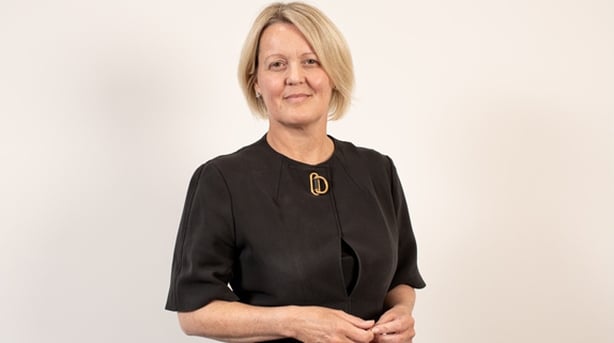NatWest said it returned to profit in the first quarter after joining rivals in releasing some of the provisions it had set aside to cover expected pandemic-related bad loans.
But the UK lender warned that a money laundering case could trigger a big bill.
NatWest CEO Alison Rose's efforts to clean up NatWest's image - including ditching the group's scandal-tainted Royal Bank of Scotland name - hit a setback last month when regulators launched criminal money laundering charges against it.
Prosecutors at the Financial Conduct Authority allege the state-backed bank failed to detect suspicious activity by a client that deposited £365m in its accounts over five years, of which £264mn was in cash.
If convicted, it could face an unlimited fine.
NatWest said today this could lead "to further substantial costs and the recognition of provisions". Its shares fell 2% in early trade.
The looming court case - an initial court date has been set for May 26 - comes as NatWest reported a pre-tax profit of £946m, almost double an average of analyst forecasts. The bank made a £519m pre-tax profit in the same period last year.
Like HSBC and Lloyds, NatWest's profits were boosted by a net impairment release, of £102m. Analysts had forecast an extra charge of £251m.
The bank - which remains 60% taxpayer-owned following a government bailout in the 2007-09 financial crisis - had slumped to a £351m pre-tax loss in 2020.

Rose said unpaid loans due to the pandemic remained low and vaccine rollouts and reduced lockdowns had given "reasons for optimism".
"However, there is continuing uncertainty for our economy and for many of our customers as a result of Covid-19," Rose said.
Banks across the industry saw their finances dented by the pandemic in 2020, but NatWest was a relative outlier in falling to an annual loss.
The domestically-focused lender's income was hit particularly hard by a household spending crunch, while it missed out on the boosts Barclays and HSBC got from larger investment banks with an international footprint.
In a bid to turn things around, Rose laid out plans to axe further costs in February, including winding down its under-performing Ulster Bank in Ireland.
It said today that its plan for Ulster Bank's exit from Ireland remains on track, while Ulster Bank remains open for business.
NatWest bought back £1.1 billion worth of stock from the government to reduce its stake from 62% last month, cutting its core capital buffer to 18.2% from 18.5%.
The bank's deposits jumped by a further £21.6 billion over the quarter as customers continued to rein in spending, while it granted £9.6 billion of new mortgages amid an ongoing housebuying boom.
NatWest would move HQ from Scotland if it votes for independence - CEO
NatWest also said today that the bank would move its headquarters from Scotland if the country votes for independence in a referendum, days before parliamentary elections in the country.
NatWest - which renamed itself from Royal Bank of Scotland last year - is currently headquartered in Edinburgh.
"We have been very clear, and it's recognised by senior nationalists, that in the event that there was independence for Scotland our balance sheet would be too big for an independent Scottish economy," NatWest CEO Alison Rose told reporters.
"And so we would move our registered headquarters in the event of independence to London," she said.
"We are neutral on the issue of Scottish independence. It's something for the Scottish people to decide," the bank CEO added.

